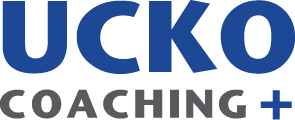Leadership challenges are inevitable. Learning is optional.
Many executive headaches revolve around leadership issues.
Here’s what I see among too many leaders today...
- Unproductive working relationships with their colleagues and direct reports.
- Insufficient “leadership presence” for promotion.
- Ineffective and dysfunctional team meetings.
- Lack of self-awareness leading to inappropriate behaviors.
- Reduced productivity due to inability or unwillingness to delegate.
You know from painful experience that these problems don't go away on their own. The critical question is this: do you want to keep fighting the fires as they come up, or are you ready to seek lasting change to improve your effectiveness as a leader and drive business results?
For over twenty years, I have tackled head-on the stubborn issues that prevent leadership effectiveness. Through executive coaching and leadership team development, I focus on helping develop emotional intelligence in leaders and collaboration within leadership teams.
I have experience in almost all industries, with a concentration of clients in financial services, biotech and healthcare. My clients consistently tell me that I’ve restored trust and inspired teamwork in their organizations.
Leadership coaching isn’t for everyone. Is it for you? Read: "Five Myths of Leadership Coaching"
Reach your potential and increase your ability to produce results through and with others.
When you go through the Leadership Coaching program can expect to:
- Learn how to build on your strengths and enhance your less-developed skills.
- Build effective teams.
- Create productive working relationships with colleagues, customers and boards of directors.
- Develop your emotional intelligence (EQ).
- Coach and mentor your reports for improved performance.
- Deal effectively with performance problems.
- Manage stress.
- Clarify your career goals and develop plans to reach them.
This one-on-one coaching program typically includes:
- 360-degree feedback.
- Self-assessments on communication style, conflict style, and EQ.
- Observations of your leading a meeting or giving a presentation.
- Detailed Development Plan with two to three development objectives along with specific action steps to achieve these objectives.
- On-going coaching, typically one-and-a-half hours every two weeks for six months.
- Evaluation of progress towards end of the program.
To discuss how you can benefit from “Leadership Coaching” contact Tom Ucko at 415-924-7010. There is no cost for an initial consultation, and no obligation to continue.
“After a most difficult period in my career, with my reputation suffering, I began working with Tom. He not only guided me in dealing with the tough situations I faced each day, he helped me regain confidence and optimism about my career, and ultimately enabled me to restore my reputation. Because of Tom’s coaching my standing in the organization has been elevated to the point where I received the highest (and rare) bonus level and am now being considered for promotion. I could not have done all this by myself.”


